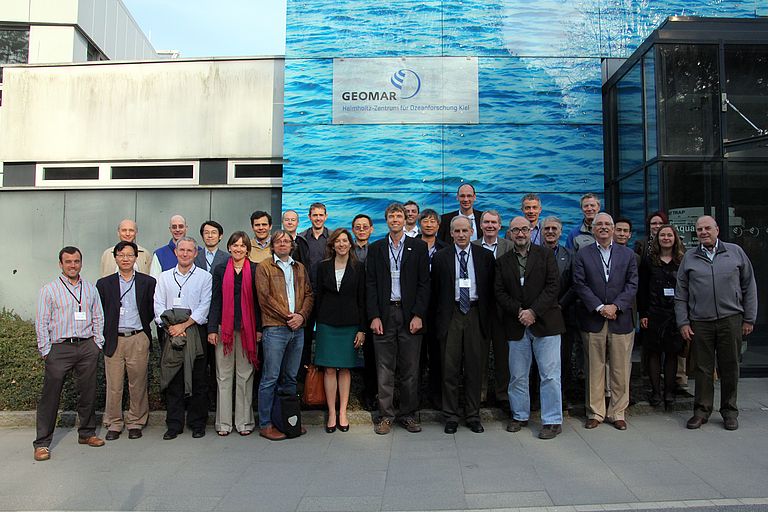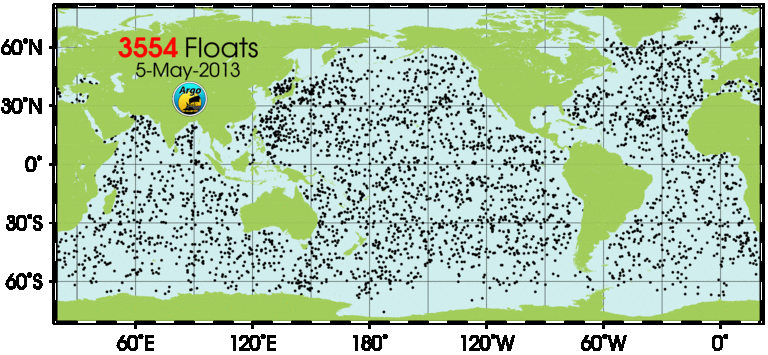International cooperation in climate and marine research
CLIVAR Scientific Steering group convenes in Kiel
When the World Climate Research Programme discussed the implementation of a new internationally coordinated climate research effort in the mid 1990s, the first hot public discussion of human-induced (anthropogenic) climate change just reached its summit. Scientists of the Max-Planck Institute for Meteorology in Hamburg, Germany stated that with a probability of 95% the observed increase in global temperature can be attributed of processes linked to human activities. Even though this result might sound convincing climate scientists still faced many open questions. In particular the role of the oceans in the climate system was widely unknown.
This was one of the major reasons for the establishment of the CLIVAR programme by the World Climate Research Programme in 1995. The scope of CLIVAR includes both natural climate variations as well as future climate change. Through internationally coordinated projects, global data sets are generated, model intercomparison experiments are performed, and regional studies of key climate phenomena like the themohaline circulation in the Atlantic or climate variability in the Tropical Atlantic are carried out. “Such internationally coordinated projects allow scientific problems to be addressed that could not be answered by an individual scientist or a single institution”, states Professor Martin Visbeck from GEOMAR Helmholtz Centre for Ocean Research Kiel who is chairing the CLIVAR Scientific Steering Group (SSG) jointly with Dr. Lisa Goddard, director of the International Research Institute in New York, USA. This week, the CLIVAR SSG convenes for its 20th session in Kiel, Germany. More than 30 scientists from 16 countries are participating. The meeting is supported by GEOMAR and the excellence cluster “The Future Ocean”.
“During the past 20 years internationally coordinated programmes such as CLIVAR have helped enormously to generate an excellent framework for research in Germany as well as in Europe”, Martin Visbeck continues. An outstanding example is the so-called Argo programme. Within few years a global observational network with more than 3000 deep sea drifters has been established that enables study of the variability in the interior of the ocean for the first time. “Without CLIVAR, understanding of the global climate system as well as regional phenomena such as the El Niño-Southern Oscillation or the North Atlantic Oscillation would not be as advanced”, Lisa Goddard agrees. “The benefits to society of this research far outweighs the cost”, Goddard continues.
A major topic of the SSG meeting in Kiel is the discussion of new directions for the CLIVAR programme in the coming years. “We adjust the goals of the programme according to new findings and frameworks in order to ensure to ensure CLIVAR achieves its aim of providing the knowledge of climate variability and change society needs to prepare for the future”, explains Professor Visbeck.
Links:
www.clivar.org Climate Variability and Predictability Programme (CLIVAR)
www.geomar.de GEOMAR Helmholtz Centre for Ocean Research Kiel
www.ozean-der-zukunft.de Excellence cluster “The Future Ocean”
Contact:
Dr. Andreas Villwock (GEOMAR, Communication & Media), Phone: +49-431 600-2802, avillwock(at)geomar.de




